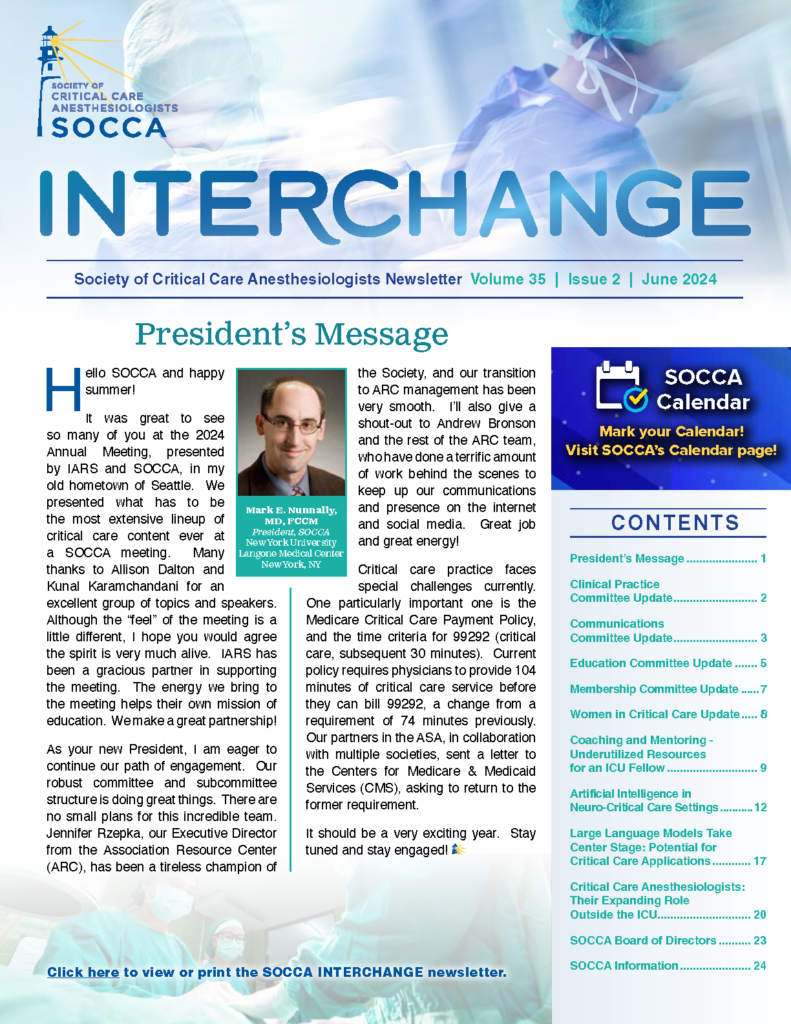Pro and Con: Vitamin C and Sepsis – Pro
“Part of this complete breakfast.” This is the closing line of nearly every breakfast food commercial since at least the mid-1980s. The final scene universally depicts two mainstays: the product, and a cup of orange juice. In popular culture, citrus fruits are crucial to balanced nutrition and provide essential vitamin C. Colloquially, this nutrient is well known to stave off scurvy; but, medically, it has far more powerful potential as a tool to combat the sequelae of infection. The term sepsis comes from the Greek word sipsi, meaning ‘to make rotten.’ Putrefaction of tissue leads to rampant infections that ravage our patients, leaving them debilitated, disabled, or worse, dead. As cells die, connective tissue disintegrates. The decay process snowballs until multiple organ systems have failed and the condition is unsurvivable. Enter ascorbic acid. Research over the last 20 years has revived vitamin C as a pivotal adjunct in the treatment of sepsis with promising results. Therefore, critical care physicians should administer vitamin C to septic patients because it is safe, it arrests progression to multi-system organ failure, and it saves lives.
Vitamin C is safe. Naturally occurring and consumed for centuries, vitamin C is ubiquitous and without significant adverse effects when given intravenously.1 Moreover, the commonly held misconception about a pro-oxidative effect has been debunked.2 In higher doses than those used clinically, there is a theoretical risk of metabolizing vitamin C into oxalate, thereby running the risk of forming calcium-oxalate nephrolithiasis. However, this only holds true if 1) thiamine cannot prevent the formation of oxalic acid, 2) There exists severe renal impairment, and 3) continuous renal replacement therapy (CRRT) is not utilized, as dialysis clears vitamin C extremely effectively.3 Since ICU patients are presumably well monitored and started on CRRT when indicated, Vitamin C can be administered safely, even to the most vulnerable patients.
Research suggests that vitamin C arrests progression to multi-system organ failure (MSOF). Sepsis 3 defined sepsis as “life-threatening organ dysfunction” caused by a “dysregulated host response to infection,” with septic shock being: a requirement for vasopressors to achieve a mean arterial pressure of 65mmHg, or a lactatemia above 2mmol/L without hypovolemia.4 As illustrated by the SOFA score, sepsis progresses through sequential organ system failure with an incremental increase in mortality associated with each increase in SOFA value. Vitamin C works as an antibiotic and an anti-inflammatory to prevent apoptosis, decrease membrane and endothelial permeability, and ultimately halt the damage caused by sepsis.5 Burn patients who received vitamin C required less IV fluid administration and had improved tissue edema—direct evidence of endothelial repair.6 Vitamin C has been shown to decrease pro-calcitonin levels, SOFA score, and progression to MSOF.7 Furthermore, vitamin C restores host function by improving microcirculatory blood flow, sensitizing cellular response to steroids,8 and participating in the synthesis of adrenergic molecules, such as dopamine, norepinephrine, and epinephrine.9 Septic patients are also notoriously vasopressin depleted,10 and vitamin C acts as a critical co-factor for the manufacture of vasopressin. These effects decrease exogenous vasopressor requirements and improve circulatory stability.11
Vitamin C saves lives. In 2009, Wilson correlated vitamin C deficiency with multiorgan failure and death.12 Over the last three years, vitamin C has repeatedly been shown to improve patient outcomes. Zabet and Marik demonstrated decreased mortality with vitamin C supplementation in sepsis.7,11 Septic patients who received IV vitamin C were less likely to die, both when compared to initial APACHE II risk of death, and when compared to controls. These and other studies have also shown shorter mechanical ventilation times,6 decreased vasopressor doses,7,11 and a lower rate of requiring renal replacement therapy.7 Although the Marik study combined vitamin C with hydrocortisone,7 the recent ADRENAL study would seem to support a greater treatment effect with vitamin C than steroids, as this RCT failed to show that steroids improve mortality in sepsis.13
Septic patients are uniquely suited for vitamin C therapy for three reasons. Firstly, they are vulnerable to complications, so low-risk interventions without added side effects are ideal. Secondly, they suffer from metabolic disarray. Sepsis is characterized by a dysregulated host response to infection, and septic patients have abnormal levels of vasopressin, pro-calcitonin and vitamin C; restoring homeostasis and repleting deficiencies will favor an adaptive host response. Lastly, they are tenuous. Septic patients are at risk of rapid deterioration, thereby requiring acute, intensive care with the most logical, targeted therapies to rapidly decrease their SOFA score, halt multi-system organ failure and save lives. In conclusion, providing the best medical care that tackles disease at biomolecular, cellular, and macroscopic levels requires we take risks and improve practice. Administering IV vitamin C in sepsis is a low-risk, high-reward protocol for success, which may soon become standard of care. Orange juice isn’t just for breakfast anymore.
References
- Fowler, AA, Syed AA, Knowlson S, Sculthorpe R, Farthing D, DeWilde C, Farthing CA, Larus TL, Martin E, Brophy DF, Gupta S, Fisher BJ, Natarajan R. Phase I safety trial of intravenous ascorbic acid in patients with severe sepsis. J of Translational Medicine 2014; 12(32):1-10. doi:10.1186/1479-5876-12-32
- Muhlhofer A, Mrosek S, Schlegel B, Trommer W, Rozario F, Böhles H, Schremmer D, Zoller WG, Biesalski HK. High-dose intravenous vitamin C is not associated with an increase of pro-oxidative biomarkers. Eur J Clin Nutr 2004 Aug; 58(8):1151-8. doi: 10.1038/sj.ejcn.1601943.
- Honore PM, De Waele E, Jacobs R, Mattens S, Rose T, Joannes-Boyau O, De Regt J, Verfaillie L, Van Gorp V, Boer W, Collin V, Spapen HD. Nutritional and metabolic alterations during continuous renal replacement therapy. Blood Purif 2013; 35(4):279-84. doi: 10.1159/000350610.
- Singer M, Deutschman CS, Seymour CW, Shankar-Hari M, Annane D, Bauer M, Bellomo R, Bernard GR, Chiche J, Coopersmith CM, Hotchkiss RS, Levy MM, Marshall JC, Martin GS, Opal SM, Rubenfeld GD, van der Poll T, Vincent J, Angus DC. The third international consensus definitions for sepsis and septic shock (Sepsis-3). JAMA 2016; 315(8):801–810. doi:10.1001/jama.2016.0287
- Honore PM, Jacobs R, Hendrickx I, De Waele E, Spapen HD. Adjuvant vitamin C treatment in sepsis—how many oranges a day keep (vasopressor dependent) septic shock away? J Thoracic Dis 2016 Sep; 8(9):E993-E995. doi: 10.21037/jtd.2016.08.60
- Tanaka H, Matsuda T, Miyagantani Y, Yukioka T, Matsuda H, Shimazaki S. Reduction of resuscitation fluid volumes in severely burned patients using ascorbic acid administration: a randomized, prospective study. Arch Surg 2000; 135(3):326-31. doi:10.1001/archsurg.135.3.326.
- Marik PE, Khangoora V, Rivera R, Hooper MH, Catravas J. Hydrocortisone, vitamin C, and thiamine for the treatment of severe sepsis and septic shock: a retrospective before-after study. Chest 2017 Jun; 151(6):1229-1238. doi: 10.1016/j.chest.2016.11.036.
- Marik, PE. “Vitamin S” (steroids) and vitamin C for the treatment of severe sepsis and septic shock! Crit Care Med 2016 Jun; 44(6):1228-9. doi: 10.1097/CCM.0000000000001684.
- Zipursky JS, Alhashemi A, Juurlink D. A rare presentation of an ancient disease: scurvy presenting as orthostatic hypotension. BMJ Case Rep 2014 May; 23;2014. doi: 10.1136/bcr-2013-201982.
- Landry DW, Levin HR, Gallant EM, Ashton RC Jr, Seo S, D’Alessandro D, Oz MC, Oliver JA. Vasopressin deficiency contributes to the vasodilation of septic shock. Circulation 1997 Mar; 95(5):1122-5. doi.org/10.1161/01.CIR.95.5.1122.
- Zabet MH, Mohammadi M, Ramezani M, Khalili H. Effect of high-dose Ascorbic acid on vasopressor's requirement in septic shock. J Res Pharm Pract 2016 Apr; 5(2):94-100. doi: 10.4103/2279-042X.179569.
- Wilson JX. Mechanism of action of vitamin C in sepsis: Ascorbate modulates redox signaling in endothelium. Biofactors 2009 Jan-Feb; 35(1):5-13. doi: 10.1002/biof.7.
- Venkatesh B, Finfer S, Cohen J, Rajbhandari D, Arabi Y, Bellomo R, Billot L, Correa M, Glass P, Harward M, Joyce C, Li Q, McArthur C, Perner A, Rhodes A, Thompson K, Webb S, Myburgh J. Adjunctive glucocorticoid therapy in patients with septic shock. N Engl J Med 2018 Jan 19. doi: 10.1056/NEJMoa1705835




































